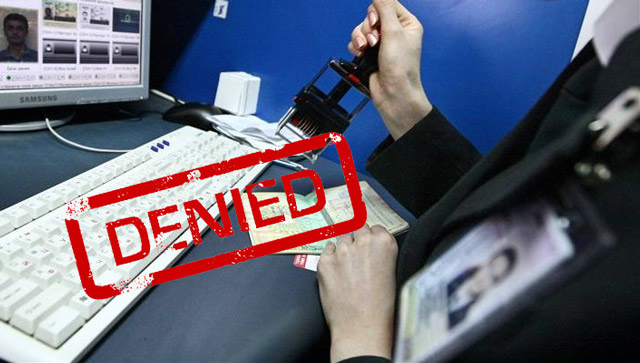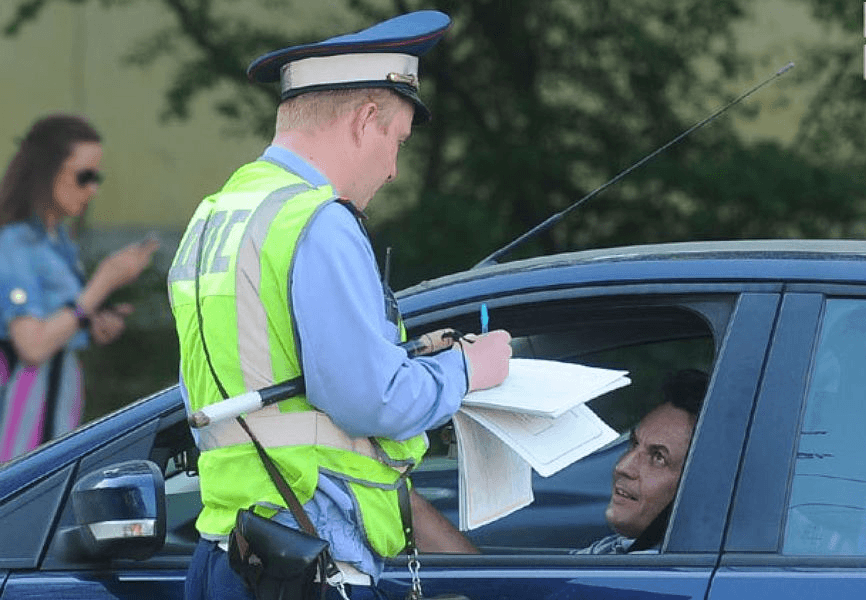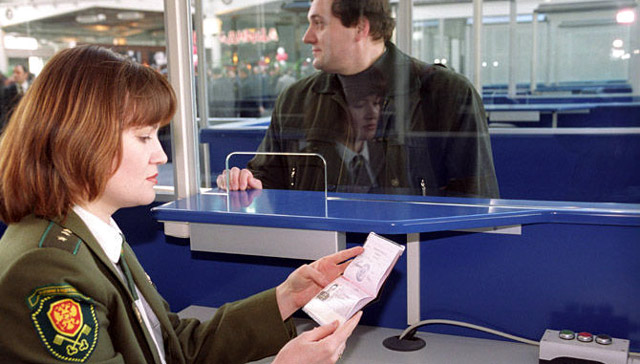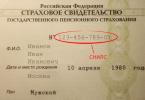Russia cares about the security of its borders and citizens. One of the forced measures to maintain order in the state is a ban on entry for foreigners. Migrants cannot enter the Russian Federation for various reasons, often the reasons for refusal are not even explained. How to check the entry ban and resolve issues with the immigration service if the trip is essential or vital?
Note!
* Due to frequent changes in legislation, information sometimes becomes outdated faster than we can update it on the site.* All cases are very individual and depend on many factors. Basic information does not guarantee the solution of your specific problems.
Therefore, they work for you around the clock. FREE expert consultants!
* Ask a question through , or through online chat .* Call the hotline: Moscow and the Region - +7(499)350-80-31 St. Petersburg and the region - +7(812)627-15-66
Who is prohibited from entering the Russian Federation by law
The main law regulating the procedure for visiting the Russian Federation is 114-FZ of August 15, 1996. To come to the country, a foreigner is required to have a Russian visa and all the necessary documentation, but sometimes this is not enough, and a ban is imposed on the guest.
The restrictive sanction is imposed exclusively on foreigners or stateless people, this does not apply to Russians. Border services are not entitled to refuse entry to a citizen of the Russian Federation.
Why can't you enter our country? At the legal level, a list of offenses is fixed, in the event of which a visit to the Russian Federation will be prohibited. The main reason is the untimely departure in past visits.
For example, a citizen of Ukraine came to the Russian Federation. Within 7 days, he must register at the place of residence. The registration period is 3 months. After this period, he is obliged to leave the country. If you break this rule and leave later than the deadline, then on your next visit, the border guards will most likely refuse entry.
Information on the duration of stay of foreigners is contained in a common database, to which the border services of all points of entry have access. Therefore, the border guards have up-to-date information about all violators.

A foreigner can find out about the entry ban when passing through border control
Grounds for entry ban for foreign citizens
The reasons for restricting visits to the country can be a variety of misconduct by a foreign guest. There is a very extensive list of such violations. The most common causes are seemingly very minor misconduct, but one way or another they are considered violations:
The regulated terms of residence in the state were violated, that is, the foreigner did not leave the Russian Federation in a timely manner.
A foreign guest made a late payment on a patent or did not pay at all. The patent is invalidated, which means the loss of the right to work and live in the Russian Federation for more than 90 days. After the first day of cancellation of the document, the stay of a foreigner in the country is considered illegal, which means that he must leave the Russian Federation. Living on a revoked patent is one of the most common reasons for a ban.
A foreigner committed an offense two or more times, this includes fines from the traffic police, drinking alcohol in the wrong places, and so on.
A foreign guest provided false information about his person or the purpose of the trip.
When entering, customs or sanitary rules were violated. Entry will be prohibited until the violations are corrected.
Regarding the foreign guest, the readmission procedure has been terminated (prohibition for 3 years).
There is a valid conviction for a criminal offense committed both in the Russian Federation and in another state.
An incomplete list of papers for opening a visa has been provided, or there is not enough money on hand to live in the country.
Using fake papers to visit Russia. For example, there was an attempt to enter the Russian Federation with a false passport after being expelled.
A foreign guest has not paid fines, taxes, evades payment of expenses related to his deportation during his last visit.
In some cases, the reason is reported immediately and a notice is given, indicating which law and in which region was violated. And sometimes the border guards do not report the reason for the refusal and you have to find it out yourself.
Video: reasons for banning entry into Russia
Deportation is the expulsion of a foreign guest to another state. It often has no legal consequences if the person does not prevent their departure. The sanction is often applied to foreigners who have violated the terms of residence in the country.
Expulsion is more of a preventive measure to prevent further violations by a foreigner.
Readmission - the transfer of a foreigner who is in Russia on illegal grounds to the state from which he came.
Table: for how long is entry to Russia prohibited
| Offense | Entry ban period |
| Making a decision on administrative expulsion from the Russian Federation, deportation or transfer by the Russian Federation to a foreign state in accordance with an international agreement on readmission. | 5 years from the date of departure |
| Repeated (two or more times) decisions on administrative expulsion from the Russian Federation, deportation or transfer by the Russian Federation to a foreign state in accordance with the international treaty of the Russian Federation on readmission | 10 years from the date of departure |
| Repeated (two or more times) within three years bringing a foreign citizen to administrative responsibility in accordance with the legislation of the Russian Federation for committing an administrative offense on the territory of the Russian Federation | 3 years from the date of the last ruling |
| The presence of an unexpunged or outstanding conviction for committing an intentional criminal offense on the territory of the Russian Federation or abroad, recognized as such in accordance with federal law | until the end of the conviction |
| Staying in the period of his previous period of stay on the territory of the Russian Federation continuously for more than 180 days, but not more than 270 days from the date of expiration of the period of temporary stay in the Russian Federation of a foreign citizen provided for by federal law | 5 years from the date of departure |
| The presence of a foreign citizen during his previous stay on the territory of the Russian Federation continuously for more than 270 days from the date of expiration of the period of temporary stay in the Russian Federation provided for by federal law | 10 years from the date of departure |
| Tax evasion or administrative fine or non-reimbursement of expenses related to administrative expulsion from the Russian Federation or deportation of a foreign citizen | until full payment of the relevant payments |
| Exceeding during the period of his previous stay in the Russian Federation the period of stay of 90 days in total during each period of 180 days of a foreign citizen in the Russian Federation | 3 years from the date of departure |
Video: amnesty for persons who violated migration laws (citizens of Moldova and Tajikistan)
Who can establish and lift a ban
Often the imposition of a sanction is associated with restrictions imposed by public services:
- GUVM MIA;
FSB of Russia;
Ministry of Internal Affairs of Russia;
Rosfinmonitoring;
Ministry of Defense of Russia;
SVR of Russia;
Ministry of Justice of Russia;
Russian Foreign Ministry;
Rospotrebnadzor;
Federal Drug Control Service of Russia;
FMBA of Russia.

If an immigrant is repeatedly convicted of violating traffic rules, this may be followed by a ban on re-entry to Russia
How to check for a travel ban
There are two ways to find out if restrictive sanctions have been set:
look through the Internet, on the website of the Main Department of Internal Affairs of the Ministry of Internal Affairs;
write a formal request to a government agency.
An easy and quick way to determine the presence of a ban is an online check on the website of the Main Department of Internal Affairs of the Ministry of Internal Affairs. In the window that opens, enter personal data in Russian (full name, passport information, date of birth, citizenship, country). After submitting the form, the system will display a message in the form of an information note. If the sanction was not introduced, then the result of the request will contain information that no barriers to entry have been identified. If the database contains information about restrictive measures imposed on a foreigner, then a message will appear that visiting Russia is impossible. The region of the Russian Federation that initiated the procedure will also be indicated. It should be borne in mind that the certificate is for informational purposes only, and the actual state of affairs may differ slightly. For example, due to a delay in updating the database.
A legally significant answer can only be obtained by contacting a government agency with a statement. The migrant can do this personally or through a representative. In the paper, you need to indicate personal data: full name, information about the passport, date of birth, citizenship. The response to the request must be provided within 10 days from the date of the request. The document will contain information about the presence or absence of a ban. The answer is given in writing.
Video: how to find out if a person is on the "banned" list
How to remove an illegal ban
The ban does not mean that it will not be possible to enter the state before the expiration of the sanction. There are options to remove restrictions. First, you can appeal the ban in the administrative order. Secondly, apply to the court with a statement of claim.
How to file a ban on your own
To resolve the issue, you need to file a petition addressed to the leadership of the state department that introduced the ban. After receiving the paper, the body proceeds to consider it, during which the officials get acquainted with the arguments given by the migrant. If they turn out to be convincing, then the department prepares an appropriate decree that will remove the restrictions. After all coordination operations, the Main Department of Internal Affairs of the Ministry of Internal Affairs notifies the border service of the lifting of the ban, the foreign guest's data is removed from the "black" list, and he can visit the Russian Federation.
It should be borne in mind that in order to resolve the issue in this way, you need to have good reasons. Often, the state body where the petition is sent refuses to review the case precisely because of the lack of significant reasons for this. The following foreigners are more likely to have the sanction lifted:
the foreign guest has a minor Russian child;
the person is married to a Russian woman, and the marriage was registered before the establishment of restrictive measures;
the guest was seriously ill, there are necessary certificates and medical reports;
a foreign guest has a temporary residence permit or a residence permit, a patent;
the migrant is studying at a Russian university.

If a person has exceeded the allowable period of stay in Russia due to illness, they can meet halfway and lift the ban
Appeal in court
The foreigner has the right, within 3 months from the date of the ban, to apply to the court to challenge the decision. The judge in the process of studying the nuances of the case takes into account a number of factors:
the severity of the violation that led to the ban;
danger to citizens;
other aspects of the life of a foreigner.
Often, Russian courts lift the ban, relying on the fact that the punishment for a misdemeanor is incommensurate with the crime itself. The court is likely to take the side of a migrant if he has a small child or a close relative in the Russian Federation. The court decision to lift the ban is binding on the migration service.
How long does it take to fully lift the sanction? This is due to the reasons that led to its introduction. On average, the entire procedure takes about 2 months.

Litigation will require strong evidence
Temporary suspension of the ban
Solving the issue through the court often causes difficulties for foreigners, since a person cannot physically attend the process due to restrictive measures. This moment is solved by hiring an official representative. There is another option: temporarily suspend the ban for the duration of the hearing. But this issue is also resolved with the help of a lawyer who will prepare the necessary documents and, on behalf of the principal, submit them to the court. If the petition is sufficiently motivated, the court suspends the sanction, and the foreigner will be able to legally enter the country to protect his rights. It should be understood that the temporary suspension is valid only for the period of the process.
The ban cannot be reduced, it can either be fully respected or appealed. There are no other options in Russian legislation.
Entry after the deadline
The restrictive sanction prohibiting visiting the Russian Federation is temporary. The minimum term is from several months to one year, the maximum is up to 10 years. After this time has expired, a foreigner has the right to enter Russia, provided that he has a visa and all the established documents. It is advisable to make sure before the trip that the ban is completely lifted and there are no more obstacles to visiting the country. This can be done by online verification or request.
Video: information from practicing lawyers on the entry ban, verification and removal of restrictions
Real-life examples
Foreigners often face difficulties in lifting the entry ban on their own. Here are poor command of the language, and ignorance of Russian legislation, and the very impossibility of getting into the country in order to quickly resolve the issue.
About three months ago, a man left the territory of the Russian Federation through the local BCP Zernovo-Seredina-Buda. They did not let him go back to Zernovo at the border post, putting a stamp on his passport with a ban on entry for three years, since at the moment he had three traffic violations (1. the turn signal lamp was not on, 2. the rear passenger was not fastened with a seat belt. 3 . on the same axle tires with different tread), and he was a persistent violator. He wanted to appeal against this ban, but the documents on the ban in the Bryansk border detachment were not shown to the lawyer hired, that is, there was nothing to go to court with.
Nike
http://russia-ukraine.tk/forum/32–3005–1
In this case, there is a lawyer's mistake: it was necessary to apply to the Federal Migration Service, and after its abolition - to the Ministry of Internal Affairs. This is where decisions are made and information is stored. The border guards do not have these documents at their disposal.

The border guards do not decide on the entry ban, but only report its presence
In such cases, lawyers specializing in migration law are effectively assisted. In the piggy banks of human rights defenders, one can find many successfully resolved cases in seemingly hopeless situations.
A citizen of Ukraine was banned from visiting the Russian Federation for 5 years - a serious period. The basis was the residence of the migrant in the Russian Federation for more than 180 days. The foreigner applied to the court, indicating that the exceeding of the allowable period was due to his serious illness and provided all the certificates. The court accepted the evidence of the migrant and canceled the sanction.
But sometimes it also happens that the ban is set by mistake, but the truth cannot be achieved.
The trouble was that the idiots of the border guards (and I'm an idiot too) entered me incorrectly into the database, and apparently many times, so I lost the court, I could not get all my names. It is interesting that the ban began to operate a year after it was installed, that is, the ban was put in place in 12, and I traveled and flew with it without problems for a whole year, until the migration reform began. That is, when I was first put off the plane, I had two years of the ban, not three)) For a very long time I tried to understand what the point was - everything was clean everywhere, all the documents were in order, the patent was valid, the Federal Migration Service shrugged what it was , apparently, Domodedovo is naughty, I make an attempt number two and they shoot me again. I then smashed everything that I could smash while at home, and all the answers you have are all clear, go. They have such a mess in their databases that I can’t describe it in a fairy tale, I don’t understand at all how you can put something on these databases, I had to fuss for three days, lifting all my papers for all the years to compare all my entries and exits with what's going on in the database. All this time, being with a ban, I myself went to all the authorities, and filed applications, for the first time I even came to court myself, to which I was answered approximately “since you are here, then there are no problems, use other modes of transport. And we are sending your case for reconsideration, but it’s better not to come yourself next time. ” Then the FMS ignored the courts by not being corny. My ban expired in August, I waited a couple of months for the bases to be updated and left at the end of October in the old fashioned way through Belarus, just in case, so as not to attract the attention of the border guards that I had been in the Russian Federation all this time, and I decided to go back by plane - to check I took off whether a ban or not, and even if it is deployed, then two hours and you are at home, and not in a field a thousand kilometers from home. They didn’t take it off the plane and I even flew in.




